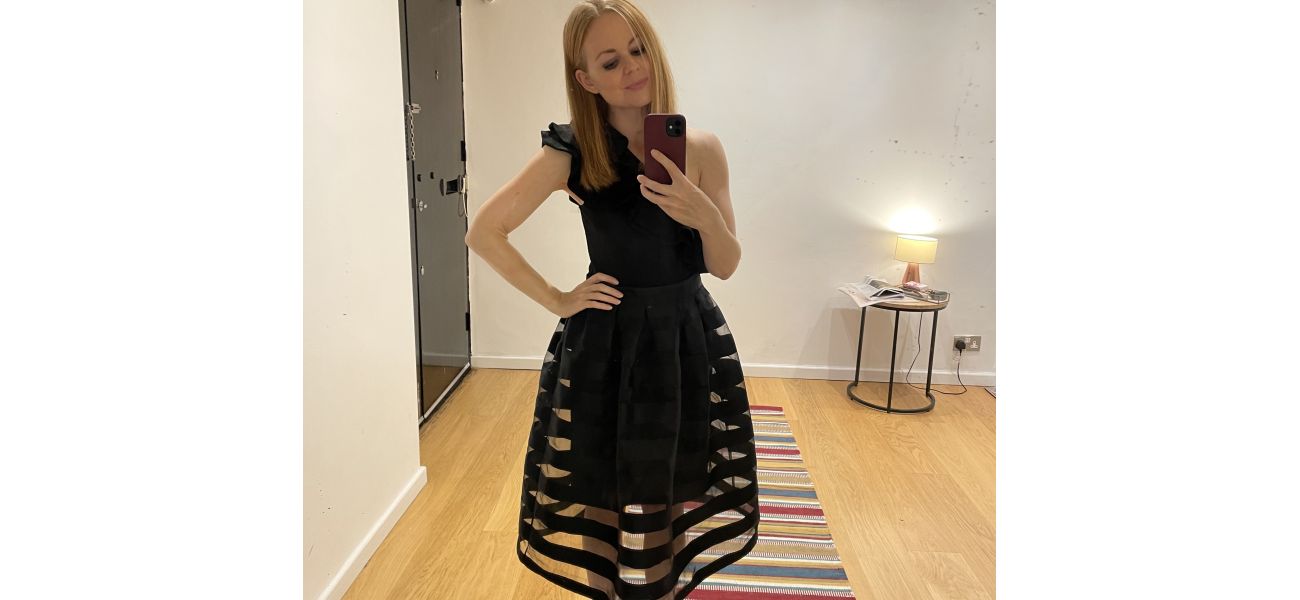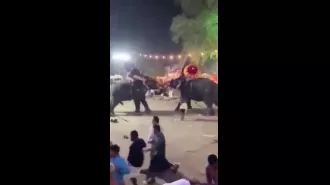I earned £500 on Vinted, covering my Christmas expenses.
Vinted fund gives us peace of mind to enjoy quality family time and create lasting memories.
December 4th 2024.

As I strolled through the bustling aisles of the supermarket with my three-year-old, he pointed excitedly at the array of toys on display. "Look, Mommy! A Paw Patrol car, and a Spiderman toy, and a dinosaur thing!" he exclaimed, unable to contain his enthusiasm. Usually, this would have caused me to start shallow breathing, knowing that Christmas was just around the corner and the expenses that came with it were looming over me. Whether it was buying gifts for a large extended family or splurging on festive drinks, the holiday season always seemed to take a toll on my wallet.
But this year, something miraculous happened. I managed to pay for all of our Christmas expenses in advance, thanks to the money I earned from selling items on Vinted. So far, I have raised £484, and as a family, we are well on our way to reaching our goal of £500 before Christmas Eve. For those who are not familiar, Vinted is a platform for buying and selling second-hand items. It first launched in the UK in 2014, but its popularity skyrocketed after sponsoring the TV show Hollyoaks in 2021. By 2023, it had been downloaded 8.9 million times in the UK alone.
Selling on Vinted is simple - all you have to do is take a photo of the item you no longer want, upload it to the app, provide some details about its size and condition, and wait for someone to buy it. And someone almost always does. From clothes to toys to small electronics, if it can fit in a Sainsbury's bag and fit in an automated post-box, it can be sold on Vinted. The app's core principle of "reduce, recycle, and reuse" not only benefits the environment but has also removed any stigma around buying second-hand items.
However, there is a downside for sellers - prices on Vinted can be quite low. It's not uncommon to list items for just £1, £5, or £7. It can be demoralizing to make a trip to the post office with a stack of parcels, only to earn a total of £11. On the other hand, for buyers, this means that prices can be incredibly affordable. My husband was initially skeptical when I started using Vinted this year to buy clothes for our three-year-old. "Why can't you just buy him a proper pair of shoes from a store?" he would grumble as I shoved another pair of outgrown trainers into our overflowing cupboard.
But as the months passed, and our kids started getting excited about Christmas, his interest in Vinted grew. We wanted to make sure our December finances were secure, especially with the rising costs of things like heating. And with Vinted, earning extra income seemed much more feasible than trying to save money. My husband was convinced after I snagged a pair of pristine Adidas Sambas for just £20. He even downloaded the app for himself.
And he was right - his items sold like hotcakes. Trainers, especially in good condition, and football shirts were in high demand and would often sell within minutes. He believed that professional traders were buying from Vinted and reselling elsewhere, while I thought there was a shortage of men's items on the app. There was certainly never a shortage of "women's-wide-leg-black-trousers-size-10".
As our three-year-old outgrew his shoes every three months, we would list them on Vinted, and they would sell for an average of £5. It may not seem like much, but it all adds up. My husband's items also seemed to sell quicker than mine, which led to a bit of friendly competition between us. We even got my step-mother-in-law to give us some of her unwanted items, which were all high-end brands and sold for decent prices. We even made a significant profit of £150 for a pair of my husband's hand-made leather boots.
But there were some challenges along the way. My husband's early success on Vinted went to his head, and he started rummaging through the house, snapping photos of anything he deemed "unused". One weekend, I walked into the kitchen to find him photographing my old headphones and a set of resistance bands. "When was the last time you used these?" he laughed, and I snatched the dusty box out of his hands, determined to prove him wrong.
Another time, he casually mentioned that he had sold a rain jacket our youngest wore as a baby. It had been years since he had outgrown it, but it still brought tears to my eyes. We could have made a small fortune selling all of our baby clothes on Vinted, but I had a personal reason for holding on to them. We lost our daughter a year ago, and while we are not trying for another child, I couldn't bear to part with her clothes, even if they were taking up space.
Selling on Vinted has taken the pressure off during one of the most expensive times of the year. We have allocated around £200 for gifts for our children and extended family, treating our nephews, nieces, and godchildren. Another £50 will go towards a tree, £30 for decorations and wrapping, and an additional £150 for food during the Christmas period. The rest of the money will be used to take our kids on festive outings. It's not about buying extravagant gifts - last year, we got my stepson an inexpensive second-hand bike that he loved more than anything else under the tree.
Our Vinted fund reassures us that we can spend time together and make memories as a family, especially after another difficult year for so many, without having to worry about the financial burden. It also means that we won't have to make any sacrifices in January to make Christmas happen. Instead, we can focus on the joy and magic of the holiday season. And yes, we will be using some of our hard-earned £500 on Vinted - I have my eye on a particularly cool dinosaur toy. Do you have a similar story? I would love to hear it! Share it with me at [email protected]. And don't forget to leave your thoughts in the comments below.
But this year, something miraculous happened. I managed to pay for all of our Christmas expenses in advance, thanks to the money I earned from selling items on Vinted. So far, I have raised £484, and as a family, we are well on our way to reaching our goal of £500 before Christmas Eve. For those who are not familiar, Vinted is a platform for buying and selling second-hand items. It first launched in the UK in 2014, but its popularity skyrocketed after sponsoring the TV show Hollyoaks in 2021. By 2023, it had been downloaded 8.9 million times in the UK alone.
Selling on Vinted is simple - all you have to do is take a photo of the item you no longer want, upload it to the app, provide some details about its size and condition, and wait for someone to buy it. And someone almost always does. From clothes to toys to small electronics, if it can fit in a Sainsbury's bag and fit in an automated post-box, it can be sold on Vinted. The app's core principle of "reduce, recycle, and reuse" not only benefits the environment but has also removed any stigma around buying second-hand items.
However, there is a downside for sellers - prices on Vinted can be quite low. It's not uncommon to list items for just £1, £5, or £7. It can be demoralizing to make a trip to the post office with a stack of parcels, only to earn a total of £11. On the other hand, for buyers, this means that prices can be incredibly affordable. My husband was initially skeptical when I started using Vinted this year to buy clothes for our three-year-old. "Why can't you just buy him a proper pair of shoes from a store?" he would grumble as I shoved another pair of outgrown trainers into our overflowing cupboard.
But as the months passed, and our kids started getting excited about Christmas, his interest in Vinted grew. We wanted to make sure our December finances were secure, especially with the rising costs of things like heating. And with Vinted, earning extra income seemed much more feasible than trying to save money. My husband was convinced after I snagged a pair of pristine Adidas Sambas for just £20. He even downloaded the app for himself.
And he was right - his items sold like hotcakes. Trainers, especially in good condition, and football shirts were in high demand and would often sell within minutes. He believed that professional traders were buying from Vinted and reselling elsewhere, while I thought there was a shortage of men's items on the app. There was certainly never a shortage of "women's-wide-leg-black-trousers-size-10".
As our three-year-old outgrew his shoes every three months, we would list them on Vinted, and they would sell for an average of £5. It may not seem like much, but it all adds up. My husband's items also seemed to sell quicker than mine, which led to a bit of friendly competition between us. We even got my step-mother-in-law to give us some of her unwanted items, which were all high-end brands and sold for decent prices. We even made a significant profit of £150 for a pair of my husband's hand-made leather boots.
But there were some challenges along the way. My husband's early success on Vinted went to his head, and he started rummaging through the house, snapping photos of anything he deemed "unused". One weekend, I walked into the kitchen to find him photographing my old headphones and a set of resistance bands. "When was the last time you used these?" he laughed, and I snatched the dusty box out of his hands, determined to prove him wrong.
Another time, he casually mentioned that he had sold a rain jacket our youngest wore as a baby. It had been years since he had outgrown it, but it still brought tears to my eyes. We could have made a small fortune selling all of our baby clothes on Vinted, but I had a personal reason for holding on to them. We lost our daughter a year ago, and while we are not trying for another child, I couldn't bear to part with her clothes, even if they were taking up space.
Selling on Vinted has taken the pressure off during one of the most expensive times of the year. We have allocated around £200 for gifts for our children and extended family, treating our nephews, nieces, and godchildren. Another £50 will go towards a tree, £30 for decorations and wrapping, and an additional £150 for food during the Christmas period. The rest of the money will be used to take our kids on festive outings. It's not about buying extravagant gifts - last year, we got my stepson an inexpensive second-hand bike that he loved more than anything else under the tree.
Our Vinted fund reassures us that we can spend time together and make memories as a family, especially after another difficult year for so many, without having to worry about the financial burden. It also means that we won't have to make any sacrifices in January to make Christmas happen. Instead, we can focus on the joy and magic of the holiday season. And yes, we will be using some of our hard-earned £500 on Vinted - I have my eye on a particularly cool dinosaur toy. Do you have a similar story? I would love to hear it! Share it with me at [email protected]. And don't forget to leave your thoughts in the comments below.
[This article has been trending online recently and has been generated with AI. Your feed is customized.]
[Generative AI is experimental.]
0
0
Submit Comment





